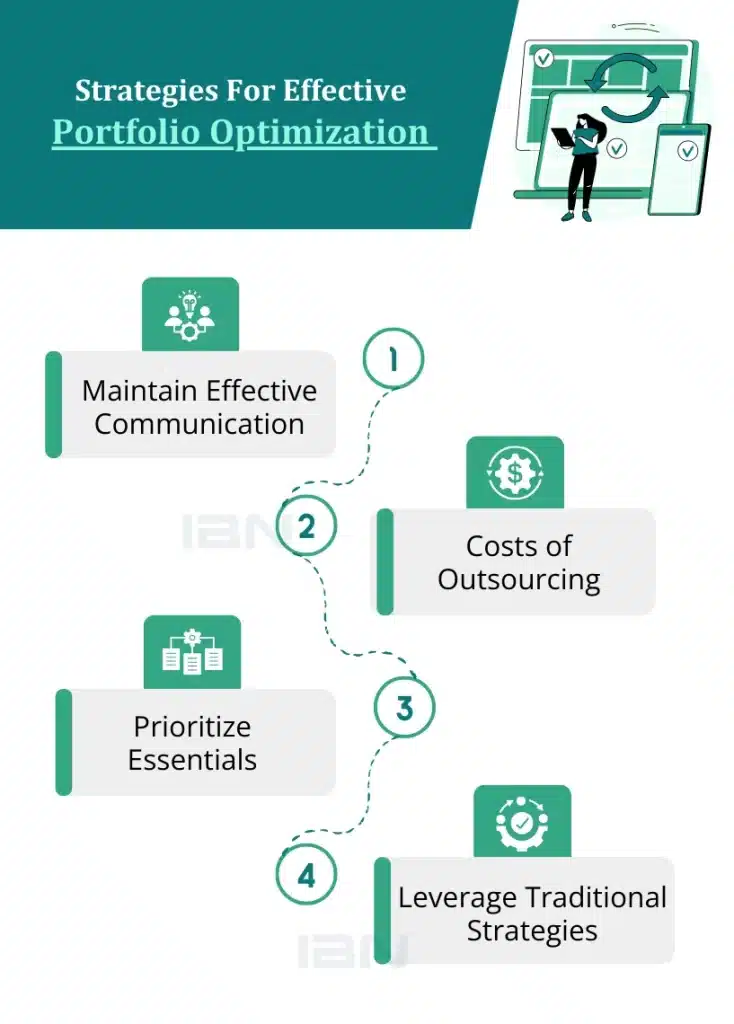In today’s complex and fast-paced financial landscape, hedge funds are constantly seeking ways to gain a competitive edge and maximize returns for their investors. One strategy that has gained significant attraction in recent years is outsourcing key functions, particularly in the realm of portfolio optimization. This approach allows hedge funds to tap into specialized expertise, advanced technologies, and cost efficiencies that can dramatically improve their investment strategies and overall performance.
A hedge fund is a great way to diversify your portfolio and reduce risk. However, managing a hedge fund is a lengthy process and requires significant expertise. As a result, many investors are turning to outsource to optimize their hedge fund portfolios.

Table of Contents
- Understanding Hedge Fund Portfolio Optimization
- Benefits of Outsourced Portfolio optimization
- Tips for Successful Portfolio Optimization
- Strategies for successful Portfolio Optimization
- Potential Risks of Outsourcing portfolio optimization
- How IBN Technologies help you in Hedge fund Outsourcing
- Conclusion
- FAQ’s
Understanding Hedge Fund portfolio optimization
Before we deep dive first let’s understand the concept.
Hedge fund portfolio optimization refers to the process of enhancing a fund’s investment strategy by leveraging external resources and expertise. This approach can be a powerful tool for reducing costs while simultaneously increasing returns. By outsourcing hedge fund services, managers can access specialized knowledge, free up critical internal resources, and reduce their administrative burden.
Benefits of Outsourced Portfolio Optimization
Despite the risks, outsourcing portfolio optimization also offers several significant benefits:
- Enhanced Transparency: By decentralizing certain operations, hedge funds can achieve greater transparency. This shift can improve asset performance, build public trust, and enhance risk management.
- Cost Reduction: Outsourcing reduces costs by minimizing the need for full-time or part-time staff and their associated salaries. This operational efficiency allows managers to allocate resources more effectively.
- Improved Asset Performance: Outsourcing specialized functions, such as research, provides access to expert knowledge, thereby enhancing the quality of research and potentially boosting asset performance.
- Increased Returns: Optimizing asset management through outsourcing can lead to better investment strategies, which can increase returns. By improving portfolio performance and managing risk more effectively, managers can enhance overall return-to-risk ratios.
Also read Unlock the Benefits of Outsourcing Accounting for Hedge Funds!
Tips for successful portfolio optimization
Portfolio optimization is a crucial aspect of financial management, allowing investors to maximize returns while managing risk. By following these guidelines, investors can leverage external expertise and resources to improve their portfolio performance while maintaining control and oversight of their assets.
- Choose Wisely – Start by selecting an outsourcing partner with proven experience in managing similar assets and the necessary resources to handle the task effectively.
- Assemble the Right Team – Ensure that the partner has a skilled team in place, capable of executing the outsourcing strategy effectively.
- Evaluate Performance – Understand how the assets are performing to gauge the impact of the outsourcing strategy and make necessary adjustments.
- Engage in Continuous Monitoring – Regularly monitor the performance of the outsourced assets to ensure the strategy remains effective and adjust as needed to address any issues.
Strategies for effective portfolio optimization
Optimizing a portfolio involves not just refining investment strategies but also strategically leveraging outsourcing to achieve greater efficiency and performance. Here are key strategies for effective portfolio optimization.
- Maintain Effective Communication: Foster open and regular communication with your outsourcing partners. Effective communication helps in addressing issues promptly, aligning strategies, and ensuring that all parties are working towards common goals.
- Costs of Outsourcing: Fund managers often overcomplicate their strategies to optimize every detail, which can lead to inefficiency. Instead, they should concentrate on fundamental aspects to ensure their investment strategy is robust before seeking ways to enhance it.

3. Prioritize Essentials: An effective approach is to focus on the core elements. By selecting the right assets and investing in key areas, managers can fully leverage the benefits of outsourcing. Essentially, choosing the right assets and targeting appropriate investment areas can enhance the advantages of outsourcing.
4. Leverage Traditional Strategies: Outsourcing can also be utilized to enhance traditional strategies. By integrating outsourcing, managers can amplify the benefits of established methods.
Potential risks of outsourcing portfolio optimization
Outsourcing portfolio optimization presents both potential risks and benefits for hedge funds and asset managers. Understanding these factors is crucial for making informed decisions about whether to adopt this strategy
- Partner Selection Risks: Opting for an inexperienced or under-resourced outsourcing partner can undermine the strategy’s success. The effectiveness of the outsourcing arrangement relies heavily on the partner’s capabilities.
- Inconsistent Performance: Outsourcing may lead to inconsistent performance as managers relinquish some control over their investment strategy. Relying on external partners for certain aspects can result in variability in outcomes and reduced control over the overall strategy
How IBN Technologies can help you in Hedge fund Outsourcing
Selecting the right outsourcing partner can greatly influence the success of the strategy. IBN Technologies offers comprehensive solutions for hedge fund outsourcing, providing a range of services to enhance operational efficiency and investment performance. The company’s expertise in financial technology and data management allows hedge funds to focus on their core investment strategies while IBN handles critical back-office and analytical functions. Our team of skilled professionals can manage complex tasks such as fund accounting, financial reporting, and family office services, ensuring accuracy and timeliness in these crucial areas.
Conclusion
Outsourcing hedge fund portfolio optimization has become an essential strategy for enhancing investment performance and operational efficiency in today’s complex financial environment. By leveraging external expertise, advanced technologies and specialized services, hedge funds can overcome challenges inherent in portfolio management, such as complex strategies, data limitations, and risk management. As financial markets continue to evolve, outsourcing is poised to play an increasingly vital role for hedge funds seeking to maintain a competitive edge and deliver superior value to their investors.
FAQ’s
1. What is portfolio optimization strategy?
Portfolio optimization is a strategy used to maximize returns and minimize risk by selecting the best mix of investments. It involves using mathematical models to determine the optimal allocation of assets in a portfolio based on an investor’s risk tolerance, time horizon, and financial goals.
2. Why are hedge funds important in portfolio management?
Hedge funds are important in portfolio management because they offer diversification and can potentially enhance returns through various strategies like short selling, leverage, and investing in non-traditional assets.
3. How can hedge funds improve portfolio diversification?
Hedge funds can improve portfolio diversification by employing various strategies such as investing across different asset classes (equities, fixed income, commodities, real estate), utilizing alternative investments (private equity, hedge funds, derivatives), and incorporating global markets to mitigate regional risks.

